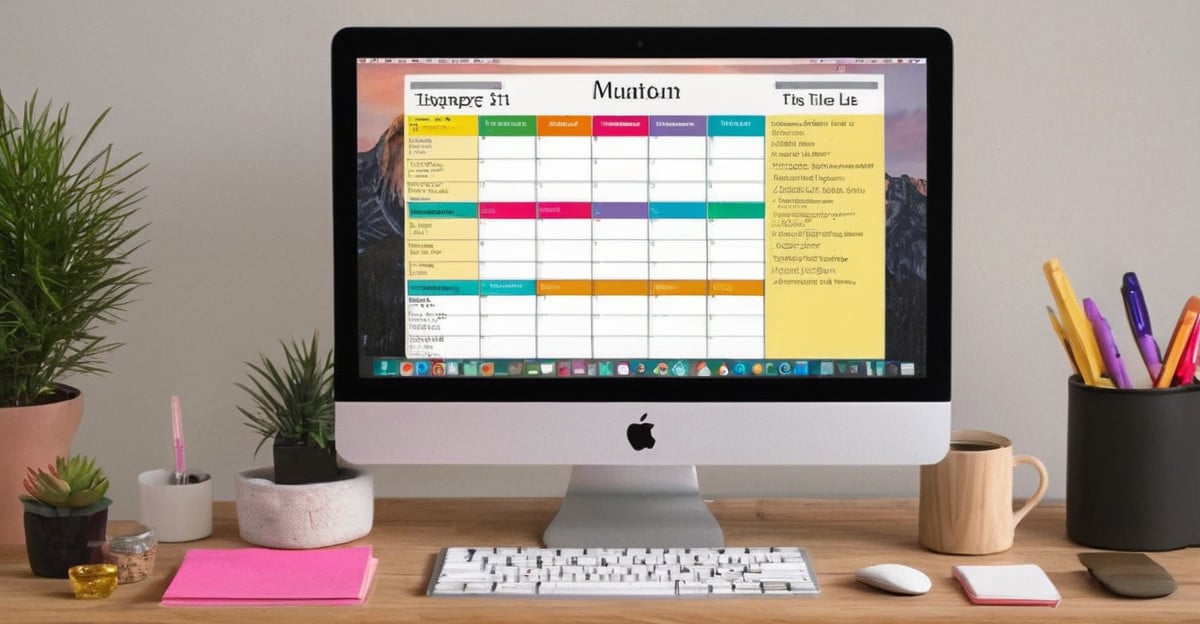Introduction to Time Management
In the bustling world of 2024, effective time management has become a crucial skill that can transform your life. But what exactly is time management? Simply put, time management is the process of planning and controlling how much time to spend on specific activities. Good time management enables an individual to complete more in a shorter period of time, lowers stress, and leads to career success.
Time management is not just about working harder but about working smarter. It involves setting clear goals, prioritizing tasks, and using time-saving tools and techniques. By mastering the art of time management, you can achieve a better work-life balance, improve productivity, and enhance the quality of your life.
In this comprehensive guide, we will delve deep into various aspects of time management, explore practical tips, and provide you with actionable insights to help you manage your time more efficiently in 2024 and beyond.

The Importance of Time Management
Time is a finite resource, and once it’s gone, you can never get it back. This is why time management is so important. Effective time management helps you make the most of your time, allowing you to accomplish more and enjoy a better quality of life.
When you manage your time well, you can achieve your goals and objectives more efficiently. This not only helps you succeed in your career but also improves your personal life. Good time management reduces stress, increases productivity, and gives you more free time to spend with family and friends.
Moreover, effective time management can lead to better decision-making. When you have a clear plan and prioritize your tasks, you can focus on what’s most important and avoid wasting time on less significant activities. This can lead to better outcomes and a more fulfilling life.
Common Time Management Challenges
While the benefits of time management are clear, many people struggle with it. One common challenge is procrastination. Putting off tasks can lead to last-minute rushes and increased stress. Another challenge is distractions, such as social media, emails, and phone calls, which can interrupt your workflow and reduce productivity.
Another common issue is poor planning. Without a clear plan or schedule, it’s easy to lose track of time and miss deadlines. Additionally, some people struggle with setting priorities and often spend too much time on less important tasks while neglecting more critical ones.
Overcoming these challenges requires self-discipline, effective planning, and the use of time management tools and techniques. In the following sections, we will explore various strategies to help you overcome these challenges and manage your time more efficiently.

Setting SMART Goals
One of the first steps to effective time management is setting clear and achievable goals. This is where the SMART criteria come in. SMART stands for Specific, Measurable, Achievable, Relevant, and Time-bound. Setting SMART goals helps you focus on what’s important and provides a clear roadmap to achieve your objectives.
A specific goal is clear and well-defined. For example, instead of saying you want to ‘get fit,’ you could set a goal to ‘jog for 30 minutes three times a week.’ A measurable goal allows you to track your progress. An achievable goal is realistic and within your capabilities. A relevant goal aligns with your broader objectives, and a time-bound goal has a clear deadline.
By setting SMART goals, you can prioritize your tasks, stay motivated, and make better use of your time. This can lead to greater productivity and a more balanced life.
Prioritizing Your Tasks
Once you’ve set your goals, the next step is to prioritize your tasks. Not all tasks are created equal, and some are more important than others. Prioritizing your tasks helps you focus on what’s most important and ensures that you make the best use of your time.
One effective method for prioritizing tasks is the Eisenhower Matrix. This tool helps you categorize tasks into four quadrants: urgent and important, important but not urgent, urgent but not important, and neither urgent nor important. By focusing on tasks that are both urgent and important, you can achieve your goals more efficiently.
Another useful technique is the ABCDE method, where you categorize tasks as A (very important), B (important), C (nice to do), D (delegate), and E (eliminate). This helps you focus on high-priority tasks and avoid wasting time on less important activities.

Creating a Daily Schedule
Creating a daily schedule is a crucial part of effective time management. A well-planned schedule helps you stay organized, manage your time better, and ensure that you complete your tasks on time.
Start by listing all the tasks you need to complete for the day. Then, prioritize these tasks based on their importance and urgency. Allocate specific time slots for each task and stick to your schedule as much as possible. Be sure to include breaks and buffer time for unexpected interruptions.
Using a planner or a digital calendar can help you stay on track. Tools like Google Calendar, Microsoft Outlook, and various time management apps can help you create and manage your daily schedule more efficiently.
Time Management Tools and Techniques
There are numerous tools and techniques available to help you manage your time more efficiently. One popular technique is the Pomodoro Technique, which involves working for 25 minutes and then taking a 5-minute break. This helps you maintain focus and avoid burnout.
Another useful tool is a to-do list. By writing down your tasks, you can keep track of what needs to be done and stay organized. Apps like Todoist, Trello, and Asana can help you manage your to-do lists more effectively.
Time tracking apps like Toggl and Clockify can help you monitor how much time you spend on different tasks. This can provide valuable insights into your productivity and help you identify areas where you can improve.
Overcoming Procrastination
Procrastination is a common challenge that can hinder effective time management. Overcoming procrastination requires self-discipline and a proactive approach.
One effective strategy is to break tasks into smaller, manageable chunks. This makes them less overwhelming and easier to start. Setting deadlines and holding yourself accountable can also help you stay on track.
Eliminating distractions and creating a conducive work environment can also help you overcome procrastination. This might involve turning off notifications, setting specific work hours, and creating a dedicated workspace.
Balancing Work and Personal Life
Effective time management is not just about work; it’s also about achieving a healthy work-life balance. Balancing work and personal life is crucial for your overall well-being and happiness.
One key strategy is to set boundaries between work and personal time. This might involve setting specific work hours and making sure you take breaks and time off. Prioritizing self-care and making time for hobbies and activities you enjoy can also help you maintain a healthy balance.
Communication is also important. Discuss your needs and boundaries with your employer, colleagues, and family members to ensure that everyone is on the same page.
The Role of Self-Care in Time Management
Self-care plays a crucial role in effective time management. Taking care of your physical, mental, and emotional well-being can help you stay focused, motivated, and productive.
Prioritizing self-care involves getting enough sleep, eating a balanced diet, exercising regularly, and taking breaks when needed. Mindfulness practices like meditation and deep breathing can also help you manage stress and stay focused.
Remember, taking care of yourself is not a luxury but a necessity. By prioritizing self-care, you can improve your overall well-being and manage your time more effectively.
Conclusion
Effective time management is a vital skill that can transform your life in 2024 and beyond. By understanding the importance of time management, setting SMART goals, prioritizing tasks, creating a daily schedule, using time management tools, and overcoming procrastination, you can achieve greater productivity and a better work-life balance.
Remember, time management is not just about working harder but about working smarter. By implementing the strategies and techniques discussed in this guide, you can make the most of your time and achieve your goals more efficiently.
Take the first step towards transforming your life today by mastering the art of time management.






